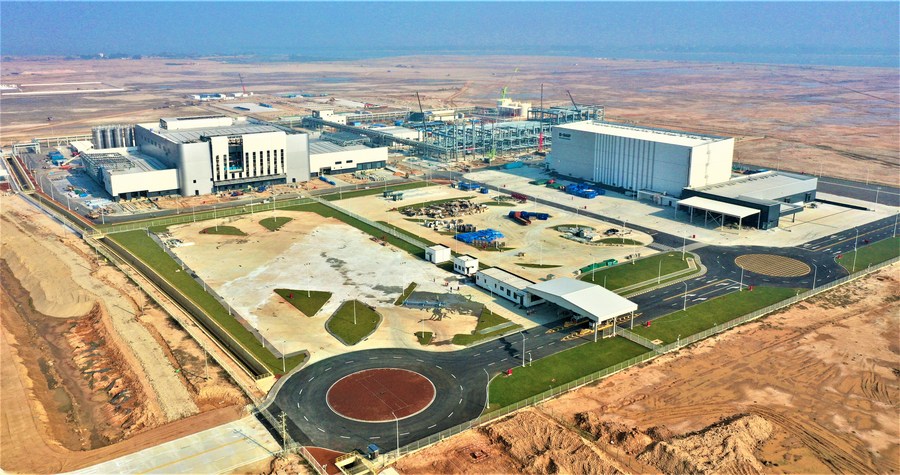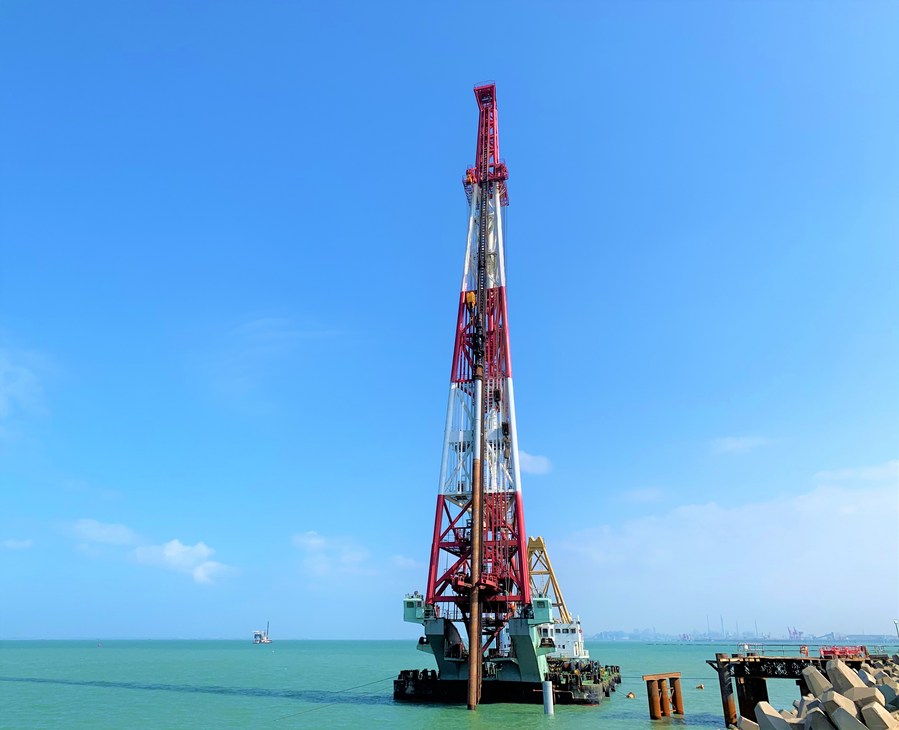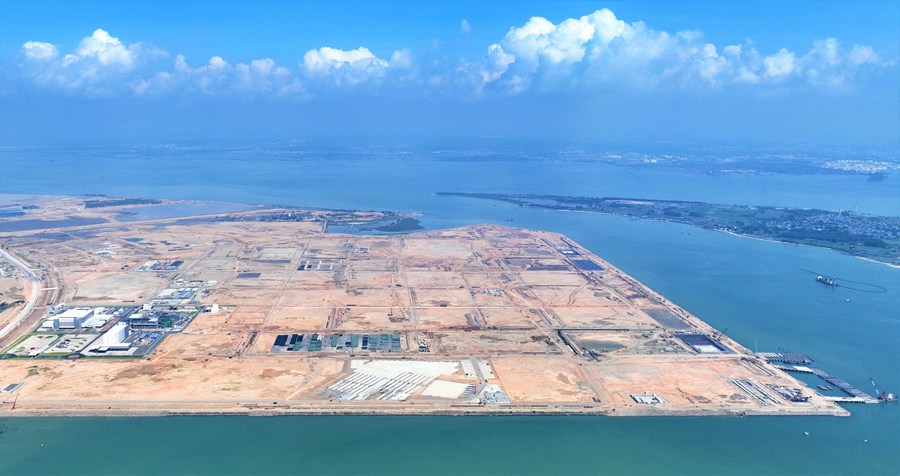BASF's Verbund site starts production in south China
* The first plants of German chemical giant BASF SE's Verbund site in the city of Zhanjiang, south China's Guangdong Province, started production as scheduled on Tuesday.
* As the first wholly foreign-funded project in China's heavy chemical industry, the Zhanjiang Verbund site represents a new paradigm for China's wider opening-up and win-win cooperation between China and Germany.
* China has vowed to open its doors even wider amid rising trade protectionism. Policies to ease market access, strengthen intellectual property protection and expand imports have been promulgated.

Aerial photo taken on Feb. 27, 2022 shows a view of BASF Zhanjiang Verbund site which is under construction in Zhanjiang, south China's Guangdong Province. (Xinhua)
GUANGZHOU, Sept. 6 (Xinhua) -- German chemical giant BASF SE has announced that the first plants of its Verbund site in the city of Zhanjiang, south China's Guangdong Province, started production as scheduled on Tuesday.
At the inauguration ceremony in Zhanjiang, Dr. Martin Brudermuller, chairman of the board of executive directors of BASF, said that the highly-anticipated BASF Zhanjiang Verbund site has now officially been put into operation.
It covers an area of around 9 square km and is expected to gain a total investment of up to 10 billion euros (about 9.93 billion U.S. dollars) by 2030. It is BASF's largest investment to date.
As the first wholly foreign-funded project in China's heavy chemical industry, the Zhanjiang Verbund site represents a new paradigm for China's wider opening-up and win-win cooperation between China and Germany, regardless of the complex international situation and the COVID-19 pandemic.

BASF kicks off the piling work of the first plants of its Verbund site in Zhanjiang, south China's Guangdong Province on May 30, 2020. (Xinhua)
According to the plan, the first plants will provide an annual output of 60,000 tonnes of engineering plastic compounds. This will raise BASF's total production of engineering plastic compounds in the Asia-Pacific region to 420,000 tonnes annually.
The production capacity will better meet the growing demand from customers, particularly in the automotive, electronics and new-energy vehicles industries, said Haryono Lim, senior vice president of the New Verbund Site China.
The construction of the Verbund site is expected to be completed by 2030. When fully operational, it will produce 60,000 tonnes of engineering plastic compounds, 1 million tonnes of ethylene, and a variety of petrochemicals, intermediates and other products annually.
"We benefit from China's policies of widening market access. Without the reform, we wouldn't have commenced the wholly-owned Zhanjiang Verbund site project," said Dr. Martin Brudermuller.

A steel pipe pile is driven successfully into the seabed at a dock of BASF Zhanjiang Verbund site in Zhanjiang, south China's Guangdong Province, Jan. 13, 2022. (Xinhua)
China has vowed to open its doors even wider amid rising trade protectionism. Policies to ease market access, strengthen intellectual property protection and expand imports have been promulgated.
In the long term, China's drivers of economic growth remain convincing. These include continued urbanization, new technologies and an emphasis on more sustainable paths for long-term growth. BASF is well-positioned to benefit from these trends, said Dr. Martin Brudermuller.
Haryono Lim said that the construction of the first installations started less than two years after the signing of a memorandum of understanding, thanks to the support from government departments and the local community, as well as the continued efforts of the BASF team and partners.
The preference of foreign capital demonstrates the market attractiveness of China. Foreign direct investment (FDI) in the Chinese mainland, in actual use, expanded 17.3 percent year on year to 798.33 billion yuan (about 114.72 billion U.S. dollars) in the first seven months of the year, according to the Ministry of Commerce.

Aerial photo taken on July 28, 2022 shows a view of BASF Zhanjiang Verbund site in Zhanjiang, south China's Guangdong Province. (Xinhua)
Guangdong is an important growth market for innovative chemical products, said Haryono Lim, noting that Guangdong is a center for important industries such as transportation, consumer goods and electronics.
According to Dr. Martin Brudermuller, BASF's strategic move of investing in a new integrated base in China is aimed at seizing the opportunity of the booming market, getting closer to customers, expanding market share and bringing about rapid development.
BASF has also made great strides in the Chinese market. The company's sales in Greater China hit a new high of 12 billion euros in 2021.
(Video reporters: Wang Pan, Huo Siying, Wu Tao, Meng Yingru and Ye Ting; Video editors: Li Ziwei and Zhu Jianhui)
- GLOBALink| BASF expands its Innovation Campus Shanghai further
- BASF to build new unit in its Zhanjiang Verbund base at S. China's Guangdong
- BASF to build Neopentyl Glycol plant at Zhanjiang Verbund site in China
- China remains priority partner for BASF: CEO
- GLOBALink | Economic Impulses: German chemical giant bullish on investing in China


